Strictly Personal
Obidients, Buhari And October 1st by Lasisi Olagunju
Published
2 years agoon
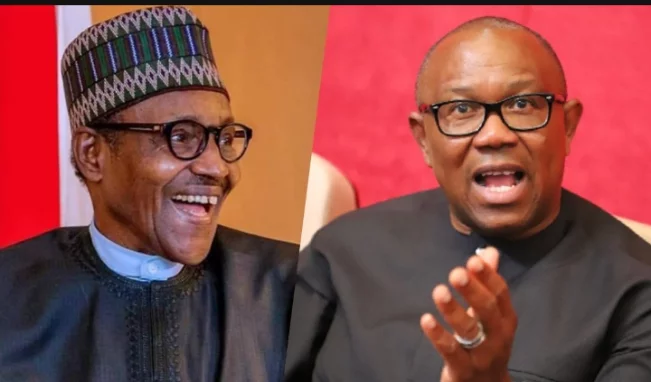
I learnt yesterday that the presidential candidate of the All Progressives Congress (APC), Senator Bola Ahmed Tinubu, will be visiting Nigeria today. The question I asked the bearer of the great tidings was: When is he going back to his rest in London? He will be arriving Nigeria two days after our urban psychedelic ‘children’ of anger shut down vital parts of Lagos and other cities in celebration of Nigeria’s Independence Day. They are called Obidients, supporters of Mr Peter Obi, urban rave of the moment. They had drums and drummers; they sang and danced; they sweated. Their procession carried the air of a rite of passage. Funerals are rites of passage. That was the ritual the city dancers staged for the regime of pains and alienation. The day the ‘Obidients’ did their street show was exactly two hundred and forty days to the end of the eight-year reign of Tinubu’s leader and role model, President Muhammadu Buhari. And while the angry urban youths were getting set last Saturday to dance round in pains, the president was on the television submitting his report card to Nigerians. He marked his own script and remarked that he “was called to serve”; that he “saw an opportunity to create a better Nigeria” and that he had done exactly that “with the support of Nigerians.” Get it very clear: Buhari in his October 1, 2022 address to the nation said that in seven years plus, he had created “a better Nigeria” for all of us. That affirmation of excellence in service delivery caught my ears and it was my main takeaway from the president’s 47-paragraph broadcast. The beneficiaries of His Excellency’s excellent piloting of our plane should include the droves parachuting out of the country.
Between May 29, 2015 when he was sworn in and May 29, 2023 when he will leave us with heavy hearts, there are 2,922 days. This means that as of the time he submitted his self-prepared assessment report last Saturday, this president had spent 2,682 out of his total days in our presidency. He has 238 days left, from today. The Buhari government has always been a nightmare impudently dressed like a daydream. Everything has a history. Even words do. Check your dictionary for the 700-year journey of ‘nightmare’ to the present. What can you find? The Oxford English Dictionary says the word ‘nightmare’ was first used around 1300 and it referred to “a female spirit or monster” which settled on and produced “a feeling of suffocation in a sleeping person or animal.” Nigerians are actually a sleepy lot; and suffocation best describes what Nigeria offers them as oxygen. Suffocation is the death that killed fishes washed ashore. There are many of such corpses on the wet sands of Nigeria.
The president who marked his own script on Saturday beat his chest in self-praise. Chinua Achebe’s lizard did that too after it jumped down unhurt from the great Iroko tree. The president may enjoy his reign but it is not funny for Nigerians. He was truly “called to serve” by, especially, Tinubu, and supported by 15 million out of Nigeria’s 200 million citizens. I excuse the genuinely innocent voter who cast their lot with Buhari without any agenda of the self. Where I come from, you teach a child how to climb, you don’t teach him how to come down; we help people to get jobs and then exit their space and watch them perform. Our ancestors tell us that Alágemo’s duty ends with the siring of his kids; it is left for the birthed to learn how to dance and to dance well. Nigeria’s sick baby was handed over to the paediatrician in the Villa seven years, four months ago. Right in the hands of the carer, the child has died. A dollar exchanged for N197 on May 15, 2015; on Friday, the last day of last month, 740 Nigerian naira bought a US dollar. The house has fallen. Like in Shakespeare’s Richard III, the dream across here is of “bloody deeds and death: fainting, despair; despairing…” Today, nightmare means just two words: bad dream. And every night, every Nigerian goes to bed bristling with the fears of a night that may have no dawn. You must be contending with these fears too – unless you sleep in the Villa in Abuja or in a royal infirmary in London.
On Saturday, the captain of this ship read a smooth speech of promise made, promise kept. He sincerely thought he had berthed at a shore made of gold. His speechwriters have used their genius to sink pleasant babanriga on the neck of the unpleasant. They sing sting for the people to chant after them. Has Buhari actually created a better Nigeria? He believed he has; Nigerians outside his government will say no, he hasn’t. And they will use their lives of misery and want to convict him. He danced zigzag while singing his own praise. He admitted, blithely, that Nigeria was confronting “current economic challenges such as debt burden, growing inflation, living standards and increasing unemployment accentuated by our growing youthful population” but explained everything away as “globally induced.” He spoke about security and insecurity. He thought he passed here too. But victims of his failure will not agree. They will say killings and attacks have become a canvass of firestorms over Nigeria, rupturing life and living. People get killed or abducted or maimed every second. Indeed, in the very week the president was beating his chest, bandits rained terror and tears.
We may have lost interest in counting the dead, even in burying them, but the United States-based Council on Foreign Relations (CFR) keeps track of these killings and attacks. I quote its update for one of the weeks of last month: “September 17: Kidnappers abducted five in Emuoha, Rivers. September 17: Nigerian troops killed one civilian in Orsu, Imo. September 17: Nigerian troops killed one civilian in Ihiala, Anambra. September 17: The Nigerian Air Force killed twenty-two bandits in Shinkafi, Zamfara. September 17: Police killed two kidnappers in Odukpani, Cross River. September 17: Islamic State in West Africa (ISWA) killed two Boko Haram commanders in Bama, Borno. September 18: Bandits killed four and abducted fifteen in Lapai, Niger State. September 18: Herders killed three in Guma, Benue. September 20: Kidnappers abducted two in Obio/Adkpor, Rivers. September 20: Kidnappers abducted two in Emuoha, Rivers. September 21: Suspected herders killed fourteen in Logo, Benue. September 21: Police officers killed one civilian in Jos North, Plateau. September 22: Three were abducted during communal violence in Makurdi, Benue. September 22: Police officers killed one kidnapper in Uhunmwonde, Edo. September 22: Kidnappers abducted three police officers in Ewekoro, Ogun. September 22: Bandits kidnapped two in Kajuru, Kaduna. September 22: The Nigerian Air Force killed forty bandits in Zurmi, Zamfara. September 22: Gunmen killed one police officer in Akoko-Edo, Edo. September 23: Bandits killed eighteen at a mosque in Bukkuyum, Zamfara.” You heard what Pastor Enoch Adeboye said yesterday, Sunday? Kidnappers now go into palaces to abduct kings. It is well. The president has done well.
The bleeding is severe; it won’t stop unless the cause is tackled. The ‘Obidients’ think the symbol of their anger could do it if he becomes our president. I smiled seeing their huge crowds in cities on October 1; they copied our security forces with shows-of-force. But street rallies of a hundred million urban dudes won’t win elections. Even if they all vote, they may win the vote but they will lose the count. If I were one of them, and in their strategy room, I would pin on the wall Joseph Stalin’s words of electoral warning: “The people who cast the votes don’t decide an election; the people who count the votes do.” If you know these Obidients, please tell them to dismount their excitable saddles and listen to those words. They should establish structures in all of Nigeria’s 176,974 polling units, 8,809 electoral wards and 774 local government areas. The time and energy they spend in ostentatious display of figures can be more productively used to prepare for the day of battle. It is 144 days to the presidential election. Their main opponents, Tinubu and Atiku Abubakar, are in every unit, every ward, every local government area, oiling their machines.
The English man says a word to the wise is enough. We don’t give a whole word as counsel where I come from. We give half. I should, therefore, let the Obidients be – at least for now. I should even leave Buhari with his toothpick and his rocking chair. His masquerade has 238 more days to do what he does with the costume and the cane in his hand. We cannot stop him from dancing towards the fragrance of retirement and from his repair to the sanctuary of opulence. But some people hatched the 2015 snake and reinforced the serpent in 2019. They now routinely run abroad to catch fresh air. They return to hit our streets with the claim of their turn to wear the costume and wield the cane. They sold sand as brown sugar, now they demand we should pay them, not with stones, but with the glorious crown of our future. But our elders are saying that whoever birthed the monster is the mother and she it is that must girdle the baby (eni t’ó bá bí omo òràn ni yóò pòn-ón). So, Tinubu and his ‘change’ agents may ‘japa’ to London – and even to Iceland (where the sun never sets), they will always be asked, whenever they come back here, to share in Buhari’s legacies.
The presidential election will hold in four months, three weeks’ time. We are already dancing towards our next mistake. The vultures are circling the carrion of the incumbent’s leftover. Sadly, the people who are supposed to lead the charge are excusing the rot. Everyone is angling for the next elections and the personal advantages the polls are likely to confer. “The only way to reveal the true nature of power is through the cries and the stories of the oppressed people who are the victims of that power,” said Yong-Bok Kim in his ‘Messianic Politics.’ But those cries and stories reveal nothing here. We reinforce failure with a revalidation of bad terms. The inheritors of Nigeria’s widow have managed so well to keep their crowd. There is the viral WhatsApp message which speaks to this: “They can’t pay ASUU because they (lecturers) did not work for six months, yet they have been paying refinery workers for over ten years now even when they haven’t refined a drop of oil. On top of that, they still promote the workers to the next level even with the refineries being shut.” I saw a version of it on Omoyele Sowore’s Facebook wall; I saw it on a few others’. The author is thus not clearly known but he or she did not drop the message and just walk away. The person remembered to wonder: “And you still see people queue behind this mind-blowing fraud.” And I quietly add: They are doing more than queuing; they are eating their tormentors’ poo. This has no class; professors who got their pay last in January are mounting campaigns for them too – malaria corpses are voting for mosquitoes; they are deploying excuses – ethnic, religious.
You may like
-


Nigeria not considering permitting foreign military bases— Information Minister
-
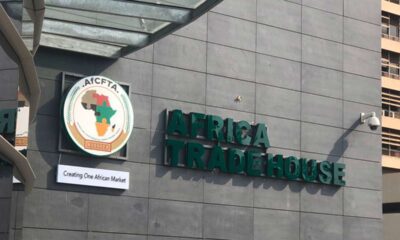

Nigeria: Manufacturers’ market access key to success of AfCFTA agreement
-


FX bank swaps account for 30% of Nigeria’s external reserves— Fitch
-


Nigeria: Civil society group sues 36 govs, Wike over N5.9tn, $4.6bn loans
-


Nigeria offers oil majors faster exit if …
-


Nigeria’s Security Exchange chief to meet foreign, local crypto exchanges, others over crypto regulation
Strictly Personal
This Sudan war is too senseless; time we ended it, By Tee Ngugi
Published
1 week agoon
April 28, 2024
Why are the Sudanese Armed Forces (SAF) and the paramilitary Rapid Support Forces (RPF) engaged in a vicious struggle? It is not that they have ideological, religious or cultural differences.
Not that people should fight because of these kinds of differences, but we live in a world where social constructions often lead to war and genocide. It is not that either side is fighting to protect democracy. Both sides were instruments of the rapacious dictatorship of Omar el-Bashir, who was overthrown in 2019.
Both are linked to the massacres in Darfur during Bashir’s rule that led to his indictment by the International Criminal Court for crimes against humanity. They both stood by as ordinary, unarmed people took to the streets and forced the removal of the Bashir regime.
None of these entities now fighting to the last Sudanese citizen has any moral authority or constitutional legitimacy to claim power. They both should have been disbanded or fundamentally reformed after the ouster of Bashir.
The SAF and the RSF are fighting to take over power and resources and continue the repression and plunder of the regime they had supported for so long. And, as you can see from news broadcasts, they are both well-versed in violence and plunder.
Since the fighting began in 2023, both sides have been accused of massacres that have left more than 30,000 people dead. Their fighting has displaced close to 10 million people. Their scramble for power has created Sudan’s worst hunger crisis in decades. Millions of refugees have fled into Chad, Ethiopia and South Sudan.
The three countries are dubious places of refuge. Chad is a poor country because of misrule. It also experiences jihadist violence. Ethiopia is still simmering with tensions after a deadly inter-ethnic war.
And South Sudan has never recovered from a deadly ethnic competition for power and resources. African refugees fleeing to countries from which refugees recently fled or continue to flee sums up Africa’s unending crisis of governance.
Africa will continue to suffer these kinds of power struggles, state failure and breakdown of constitutional order until we take strengthening and depersonalising our institutions as a life and death issue. These institutions anchor constitutional order and democratic process.
Strong independent institutions would ensure the continuity of the constitutional order after the president leaves office. As it is, presidents systematically weaken institutions by putting sycophants and incompetent morons in charge. Thus when he leaves office by way of death, ouster or retirement, there is institutional collapse leading to chaos, power struggles and violence. The African Union pretends crises such as the one in Sudan are unfortunate abnormally. However, they are systemic and predictable. Corrupt dictatorships end in chaos and violence.
Tee Ngugi is a Nairobi-based political commentator.
Strictly Personal
Air Peace, capitalism and national interest, By Dakuku Peterside
Published
3 weeks agoon
April 16, 2024
Nigerian corporate influence and that of the West continue to collide. The rationale is straightforward: whereas corporate activity in Europe and America is part of their larger local and foreign policy engagement, privately owned enterprises in Nigeria or commercial interests are not part of Nigeria’s foreign policy ecosystem, neither is there a strong culture of government support for privately owned enterprises’ expansion locally and internationally.
The relationship between Nigerian businesses and foreign policy is important to the national interest. When backing domestic Nigerian companies to compete on a worldwide scale, the government should see it as a lever to drive foreign policy, and national strategic interest, promote trade, enhance national security considerations, and minimize distortion in the domestic market as the foreign airlines were doing, boost GDP, create employment opportunities, and optimize corporate returns for the firms.
Admitted nations do not always interfere directly in their companies’ business and commercial dealings, and there are always exceptions. I can cite two areas of exception: military sales by companies because of their strategic implications and are, therefore, part of foreign and diplomatic policy and processes. The second is where the products or routes of a company have implications for foreign policy. Air Peace falls into the second category in the Lagos – London route.
Two events demonstrate an emerging trend that, if not checked, will disincentivize Nigerian firms from competing in the global marketplace. There are other notable examples, but I am using these two examples because they are very recent and ongoing, and they are typological representations of the need for Nigerian government backing and support for local companies that are playing in a very competitive international market dominated by big foreign companies whose governments are using all forms of foreign policies and diplomacy to support and sustain.
The first is Air Peace. It is the only Nigerian-owned aviation company playing globally and checkmating the dominance of foreign airlines. The most recent advance is the commencement of flights on the Lagos – London route. In Nigeria, foreign airlines are well-established and accustomed to a lack of rivalry, yet a free-market economy depends on the existence of competition. Nigeria has significantly larger airline profits per passenger than other comparable African nations. Insufficient competition has resulted in high ticket costs and poor service quality. It is precisely this jinx that Air Peace is attempting to break.
On March 30, 2024, Air Peace reciprocated the lopsided Bilateral Air Service Agreement, BASA, between Nigeria and the United Kingdom when the local airline began direct flight operations from Lagos to Gatwick Airport in London. This elicited several reactions from foreign airlines backed by their various sovereigns because of their strategic interest. A critical response is the commencement of a price war. Before the Air Peace entry, the price of international flight tickets on the Lagos-London route had soared to as much as N3.5 million for the economy ticket. However, after Air Peace introduced a return economy class ticket priced at N1.2 million, foreign carriers like British Airways, Virgin Atlantic, and Qatar Airways reduced their fares significantly to remain competitive.
In a price war, there is little the government can do. In an open-market competitive situation such as this, our government must not act in a manner that suggests it is antagonistic to foreign players and competitors. There must be an appearance of a level playing field. However, government owes Air Peace protection against foreign competitors backed by their home governments. This is in the overall interest of the Nigerian consumer of goods and services. Competition history in the airspace works where the Consumer Protection Authority in the host country is active. This is almost absent in Nigeria and it is a reason why foreign airlines have been arbitrary in pricing their tickets. Nigerian consumers are often at the mercy of these foreign firms who lack any vista of patriotism and are more inclined to protect the national interest of their governments and countries.
It would not be too much to expect Nigerian companies playing globally to benefit from the protection of the Nigerian government to limit influence peddling by foreign-owned companies. The success of Air Peace should enable a more competitive and sustainable market, allowing domestic players to grow their network and propel Nigeria to the forefront of international aviation.
The second is Proforce, a Nigerian-owned military hardware manufacturing firm active in Rwanda, Chad, Mali, Ghana, Niger, Burkina Faso, and South Sudan. Despite the growing capacity of Proforce in military hardware manufacturing, Nigeria entered two lopsided arrangements with two UAE firms to supply military equipment worth billions of dollars , respectively. Both deals are backed by the UAE government but executed by UAE firms.
These deals on a more extensive web are not unconnected with UAE’s national strategic interest. In pursuit of its strategic national interest, India is pushing Indian firms to supply military equipment to Nigeria. The Nigerian defence equipment market has seen weaker indigenous competitors driven out due to the combination of local manufacturers’ lack of competitive capacity and government patronage of Asian, European, and US firms in the defence equipment manufacturing sector. This is a misnomer and needs to be corrected.
Not only should our government be the primary customer of this firm if its products meet international standards, but it should also support and protect it from the harsh competitive realities of a challenging but strategic market directly linked to our national military procurement ecosystem. The ability to produce military hardware locally is significant to our defence strategy.
This firm and similar companies playing in this strategic defence area must be considered strategic and have a considerable place in Nigeria’s foreign policy calculations. Protecting Nigeria’s interests is the primary reason for our engagement in global diplomacy. The government must deliberately balance national interest with capacity and competence in military hardware purchases. It will not be too much to ask these foreign firms to partner with local companies so we can embed the technology transfer advantages.
Our government must create an environment that enables our local companies to compete globally and ply their trades in various countries. It should be part of the government’s overall economic, strategic growth agenda to identify areas or sectors in which Nigerian companies have a competitive advantage, especially in the sub-region and across Africa and support the companies in these sectors to advance and grow to dominate in the African region with a view to competing globally. Government support in the form of incentives such as competitive grants ,tax credit for consumers ,low-interest capital, patronage, G2G business, operational support, and diplomatic lobbying, amongst others, will alter the competitive landscape. Governments and key government agencies in the west retain the services of lobbying firms in pursuit of its strategic interest.
Nigerian firms’ competitiveness on a global scale can only be enhanced by the support of the Nigerian government. Foreign policy interests should be a key driver of Nigerian trade agreements. How does the Nigerian government support private companies to grow and compete globally? Is it intentionally mapping out growth areas and creating opportunities for Nigerian firms to maximize their potential? Is the government at the domestic level removing bottlenecks and impediments to private company growth, allowing a level playing field for these companies to compete with international companies?
Why is the government patronising foreign firms against local firms if their products are of similar value? Why are Nigerian consumers left to the hands of international companies in some sectors without the government actively supporting the growth of local firms to compete in those sectors? These questions merit honest answers. Nigerian national interest must be the driving factor for our foreign policies, which must cover the private sector, just as is the case with most developed countries. The new global capitalism is not a product of accident or chance; the government has choreographed and shaped it by using foreign policies to support and protect local firms competing globally. Nigeria must learn to do the same to build a strong economy with more jobs.
EDITOR’S PICK


Nigeria not considering permitting foreign military bases— Information Minister
The Nigerian government has denied reports that it is considering permitting the establishment of foreign military bases in the country...
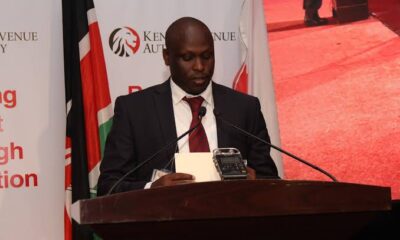

Kenya Revenue Authority partners UK to streamline customs valuation process
The Kenya Revenue Authority (KRA), has struck a partnership with the United Kingdom (UK) to streamline the Customs valuation process...
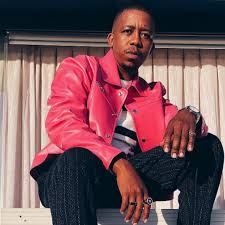

South African actor dies tragically in car accident
South African actor, Mpho Sebeng, has reportedly died in a ghastly car accident in in Potchefstroom, North West province, his...


Chelsea offers Lukaku plus cash to Napoli for Osimhen
English Premier League club, Chelsea, is said to be willing to offer Belgium striker, Romelu Lukaku, as well as fork...
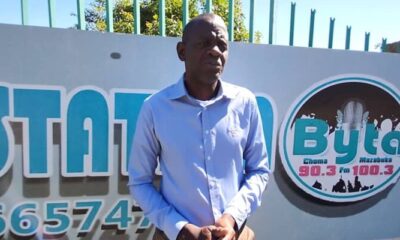

Media manager identifies bureaucratic bottlenecks as hindering access to public information
As discussions on press freedom persist, Albert Mwiinga, Station Manager of Byta FM, sheds light on the hurdles journalists encounter...


Nigeria: Manufacturers’ market access key to success of AfCFTA agreement
According to the Manufacturers Association of Nigeria (MAN), the ability of local manufacturers to compete on the continent is crucial...
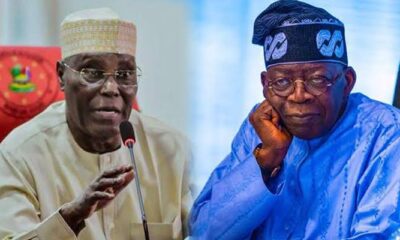

Nigeria: Atiku alleges Tinubu’s son, surrogates on board of firm awarded lucrative coastal highway contract
Former Nigerian Vice President, Atiku Abubakar, has alleged that President Bola Tinubu’s son, Seyi, and his surrogates are on the...
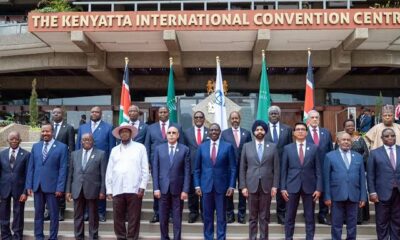

Behind the News: All the backstories to our major news this week
Over the past week, there were many important stories from around the African continent, and we served you some of...


Nigerian retail startup Renda secures $1.9m funding to drive expansion
Nigeria’s retail startup, Renda, has announced securing a $1.9 million pre-seed round of equity and debt funding to enable it...
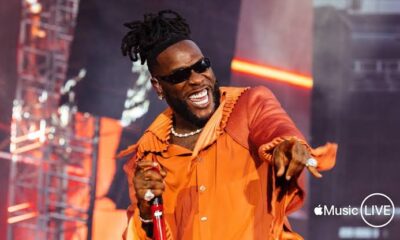

Burna Boy emerges Africa’s top earning artiste in the US from tours, concerts
Nigerian Afrobeats sensation, Burna Boy, has emerged as the first African artiste to stage the highest-grossing arena concerts and tours...
Trending
-

 VenturesNow2 days ago
VenturesNow2 days agoFX bank swaps account for 30% of Nigeria’s external reserves— Fitch
-

 Tech2 days ago
Tech2 days agoNigerian retail startup Renda secures $1.9m funding to drive expansion
-
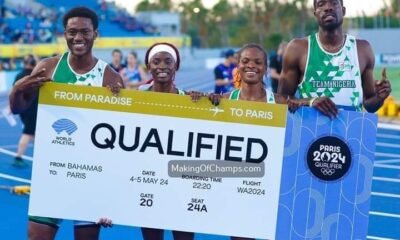
 Sports2 days ago
Sports2 days agoNigeria’s 4x400m mixed relay, 4×400 teams qualify for Olympics
-

 Culture2 days ago
Culture2 days agoBurna Boy emerges Africa’s top earning artiste in the US from tours, concerts


